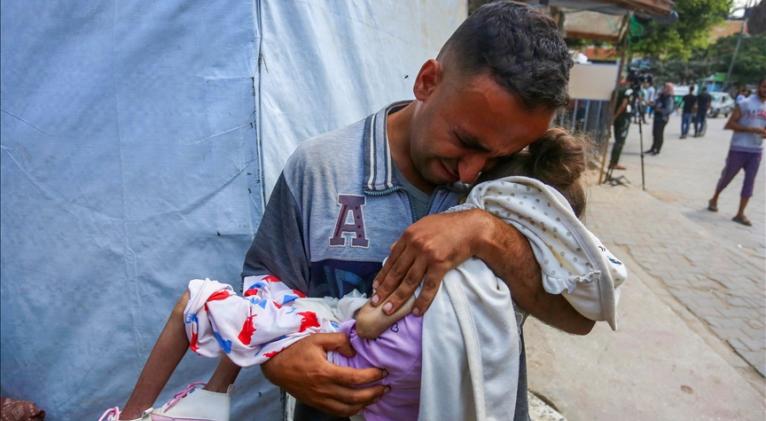UNICEF official decries dire situation for children in besieged Gaza
especiales

GAZA
A UNICEF spokesman expressed deep concern over the plight of children in besieged Gaza, saying the ongoing offensive has deprived them of sleep, safety, and a chance at a normal childhood.
In an interview following his recent mission to Gaza, C communication officer for UNICEF in the Middle East and North Africa, shared his observations and the severe challenges facing children in the region.
After visiting areas including Deir al-Balah, Khan Younis, and northern Gaza, he said they looked almost like a set from a disaster film, but with devastating real-life consequences.
"The depth of destruction, suffering, and displacement is so huge," Oweis said. "What we see on screens is just part of the reality. Being there, you can feel the extreme situation,”
He added: "Whole neighborhoods are leveled, and almost everyone in Gaza is displaced. You can feel and experience the suffering of the children. The situation is truly dire. It is unbearable for many children and families right now."
Oweis highlighted the critical humanitarian crisis in Gaza, where even basic necessities are scarce. "We are talking about lack of clean water, food, hygiene supplies, medical supplies, and medicines. Almost everything is lacking," he said.
He also pointed out the restricted access to humanitarian aid, with only a few border crossings available for aid to enter Gaza. The Rafah Crossing has been closed since May 7, leaving the Kerem Shalom Crossing as the only entry point for aid, which comes with significant challenges.
"From 8th of July we have witnessed an over 45% drop in aid access to Gaza. It was already low, but now it's even less and the needs are increasing because, after 10 months children, families, and everyone is really lacking all the essentials and whatever they had is gone by now. They don't have the resources to buy or source out what they need," he said.
Oweis decried the severe mental and emotional impact of the conflict on Gaza's children, saying they are unable to experience a normal childhood.
Many children are exhausted and fearful, asking when the war will end. The harsh living conditions, including extreme heat and inadequate shelter, have led to widespread health issues like skin diseases and respiratory infections.
Oweis stressed that ongoing violence and instability have deprived children of sleep, safety, and opportunities to learn and play, calling for urgent international action to prioritize their well-being and secure a better future for them.














Add new comment